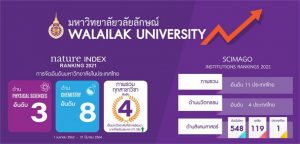Climate Smart Agriculture: Smart Farming Practice

Climate-smart agriculture is rooted in sustainable agriculture and rural development objectives which, if reached, would contribute to achieving the Sustainable Development Goals (SDGs) of reducing hunger and improved environmental management. More productive and resilient agriculture is built on the sound management of natural resources, including land, water, soil and biodiversity. Conservation agriculture, agroforestry, improved livestock and water management, integrated pest management and ecosystem approaches to fisheries and aquaculture can all make important contributions in this area. Our knowledge and practices should be firmly rooted in the rich culture and heritage of the people of southeast Asia to enable them to grow into responsible citizens through consciously practicing Climate Smart Agriculture in view of climate change and its effects.
To raising awareness and transfer the knowledge to the society, Assoc. Prof. Dr. Krisanadej Jaroensutasinee and Assoc. Prof. Dr. Mullica Jaroensutasinee, lecturers from School of Science, Walailak University in collaboration with Thailand International Cooperation Agency (TICA) is initiated to hold the online workshop on “Climate Smart Agriculture: Smart Farming Practice”. After the successful holding the first workshop on “climate smart agriculture”, they received an excellent feedback and lead to the fully funded again from SEAMEO and Chevron to hold a second workshop on “Climate Smart Agriculture: Smart Farming Practice online workshop”. Both workshops were open for academia, government officer and interested person around the world. The aims of the workshop are to promote sustainable agriculture with modern technologies and build a critical cadre of human resource who will promote/practice of climate smart agriculture adaptation and mitigation.
In setting out this framework for the training on climate smart agriculture using smart farming practices, They provide for the ambitions of sustainable living through climate smart agricultural practices by empowering learners with the necessary skills in view of the changing climate. Climate smart agriculture looks at the prosperity of the people of developing countries for improved living, better quality of life, for growth and development, for improved agricultural practices that take cognisance of the changing climate incorporate new sensor and IoT technology to manage their farms.
The 21st century is a time of rapid technological growth and social change and this workshop was aiming at ensuring that the people of all developing countries are well prepared to meet the challenges of climate change. They should also be able to explore the opportunities for improved agricultural outputs in view of the changing climate using smart farming practices. The training on climate smart agriculture using smart farming practices has to prepare both the youth and adults not just for the day to-day but for the changing life ahead and in particular climate changes.
The training on climate smart agriculture using smart farming practices at Walailak University should instil confidence in individuals and all agricultural practitioners to face the challenges of climate change ahead of them and they need to develop love and appreciation for good agricultural practices that will address climate change issues. The individuals should also become successful life-long learners and continue to operate/live effectively through practicing the appropriate agricultural methods in a rapidly changing climate.

